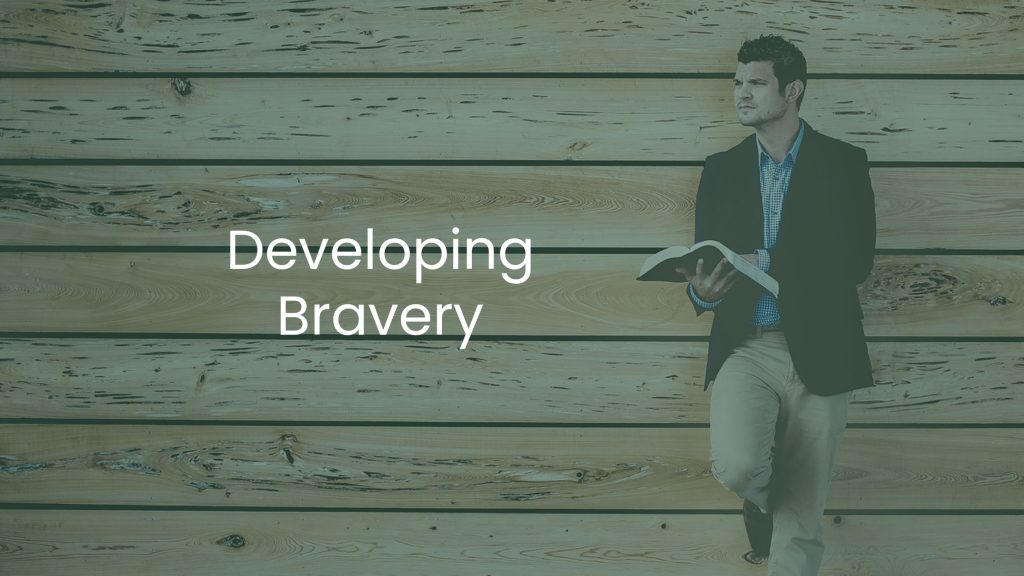This is my command – be strong and courageous! Do not be afraid or discouraged. For the Lord your God is with you wherever you go (Joshua 1:9, NLT).
There have been recent studies in the business world on the topic of bravery. Whereas happiness in the workplace has dominated in recent business and Christian books, we can now look for bravery and courage to take the ascendency.
The impetus for the examination of bravery by researchers was the 2008 financial crisis, where only nine percent of companies emerged stronger than before. The lessons learned from the 2008 crisis are now being extrapolated into best practices for current businesses and organizations (churches) that go through trauma.
The key factor discovered in the nine percent of organizations that became stronger after 2008 was bravery. The working definition of bravery in these new studies is. . .
A willingness to take bold, risky action to serve a purpose that you perceive to be worthy, usually in the face of an abiding fear.
This definition from HBR (Harvard Business Review) sounds like the Apostle Paul’s encouragement to Timothy. . .
For God has not given us a spirit of fear and timidity, but of power, love, and self-discipline (2 Timothy 1:7).
What most organizations do in times of crisis is risk assessment. This includes many staff members, spreadsheets, algorithms, numerous meetings, and considerable time. Often, by the time a decision is reached, the moment of opportunity has already left the proverbial train station.
As my HBR buddies say. . .
People have long used these tools to effectively manage and even profit from risk, but they aren’t enough to help us behave boldly in situations where we can neither identify all the potential dangers we face nor estimate their chances of materializing.
HHHHMMMHHM. . . and my buddies aren’t finished lambasting the timid. . .
Under volatile, uncertain, complex, and ambiguous (VUCA) conditions, when possible outcomes are unknown, most people feel a loss of control, triggering fear, which often leads to paralysis (the so-called ‘freeze’ response) or retreat (the ‘flight’ response). Brave leaders, by contrast, are able to reclaim their agency and fight.
I want to be brave, how about you? Our churches need brave leaders! Now, a final word from the courageous writers at HBR on the signatory marks of a brave leader. . .
They create positive narratives, cultivate confidence, take small steps to boost their comprehension of the challenges they face, make connections, and stay calm, employing a variety of techniques to do each.
The Bible teaches that bravery can be developed and learned by understanding and applying the disciplines found in 2 Peter 1. . .
In view of all this, make every effort to respond to God’s promises. Supplement your faith with a generous provision of moral excellence, and moral excellence with knowledge, and knowledge with self-control, and self-control with patient endurance, and patient endurance with godliness, and godliness with brotherly affection, and brotherly affection with love for everyone. The more you grow like this, the more productive and useful you will be (vv. 5-8a).
Leaders, whether business, political, or parents, who respond bravely often have character that’s been formed through decades of difficulties. They don’t look for trouble, mostly feel inadequate when confronting a crisis, but then rise to the occasion with courage.
I want to be brave in these end times. How about you?

